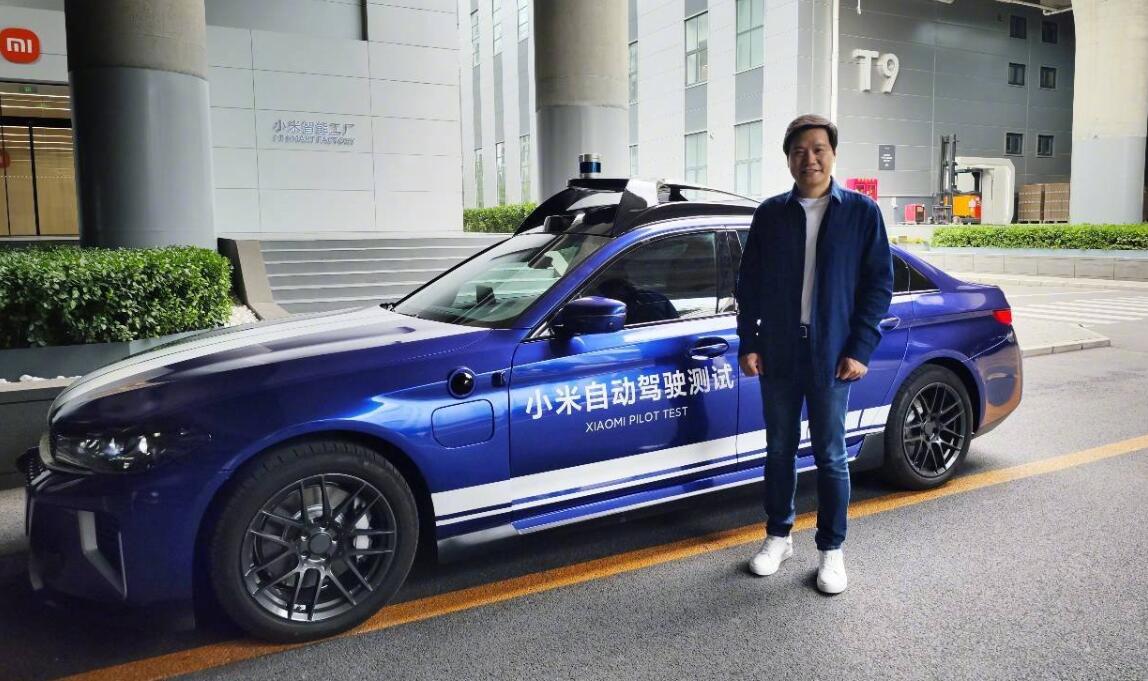Xiaomi ning elektr avtomobillar bo'limi go'yoki CALB va CATL ni batareya yetkazib beruvchi sifatida tanlaydi
Xiaomi, the prominent Chinese smartphone manufacturer turned elektr transport vositasi (EV) yaratuvchi, ma'lumotlarga ko'ra, akkumulyator yetkazib beruvchilarni tanlashda strategik tuzatishlar kiritgan. Dastlab CATLni uning darajasi sifatida belgilagan 1 EV birligi uchun batareya yetkazib beruvchi, Xiaomi endi xarajatlarni optimallashtirish uchun qayta ko'rib chiqilgan yondashuvni qo'lladi.

(Rasm: XIAOMI PILOT TEST)
According to insiders within Xiaomi’s EV division, the company has opted for CALB as its tier-1 supplier and CATL as the tier-2 supplier for power batteries, as highlighted by local media outlet Jiemian.
Initial plans saw CATL being designated as the tier-1 battery supplier due to a legal conflict involving CALB. Biroq, with the resolution of the patent dispute between the two companies, Xiaomi has revisited its supplier arrangement to better manage expenses.
The previous cost structure for Xiaomi’s battery packs, sourced from CATL, began at RMB 80,000 ($11,000), accounting for approximately 50 percent of the vehicle’s total cost.
Following the conclusion of the CALB-CATL patent dispute, CALB’s batteries have been cleared for normal market distribution, allowing Xiaomi to reevaluate its supplier strategy.
As Xiaomi’s EVs hit the market and sales volume increases, the ratio of batteries provided by both tier-1 and tier-2 suppliers will be adjusted in response to sales performance.
Oldinga qarab, Xiaomi’s EV division may explore collaborations with additional battery manufacturers, shu jumladan BYD, to further drive down battery-related expenses.
Biroq, current reports suggest that Xiaomi’s automotive division is not yet featured on BYD’s list of power battery recipients.
E'tiborlisi, CATL holds the lead in power battery installed capacity, buxgalteriya hisobi 41.79 percent with 13.47 GWh in July, according to the China Automotive Battery Innovation Alliance (CABIA). Following is BYD with 29.01 foiz va 9.35 GWh, and CALB with 9.93 foiz va 3.20 GWh.
Xiaomi’s EV business strategy will place a significant emphasis on software-driven revenue streams. Insiders from the company assert that maintaining a cost-effective edge remains crucial. Xiaomi’s EV division aims to maintain component margins at around 1 foiz, with future profitability hinging predominantly on software innovation and eco-services.
Xiaomi’s foray into the automotive realm was announced on March 30, 2021, with plans to invest RMB 10 billion in the initial phase of its automotive venture, projecting a total investment of $10 billion over the next decade.
Xiaomi’s inaugural EV model is anticipated to be a LiDAR-equipped sedan, featuring a premium variant priced above RMB 300,000.
(Eslatma: Valyutani konvertatsiya qilish kursi ishlatiladi: $1 = RMB 7.2868)

 Xitoyda avtomobil
Xitoyda avtomobil